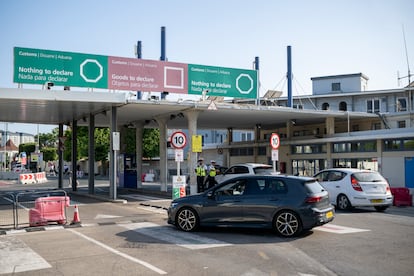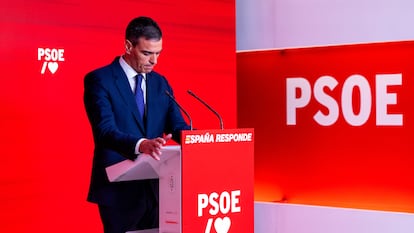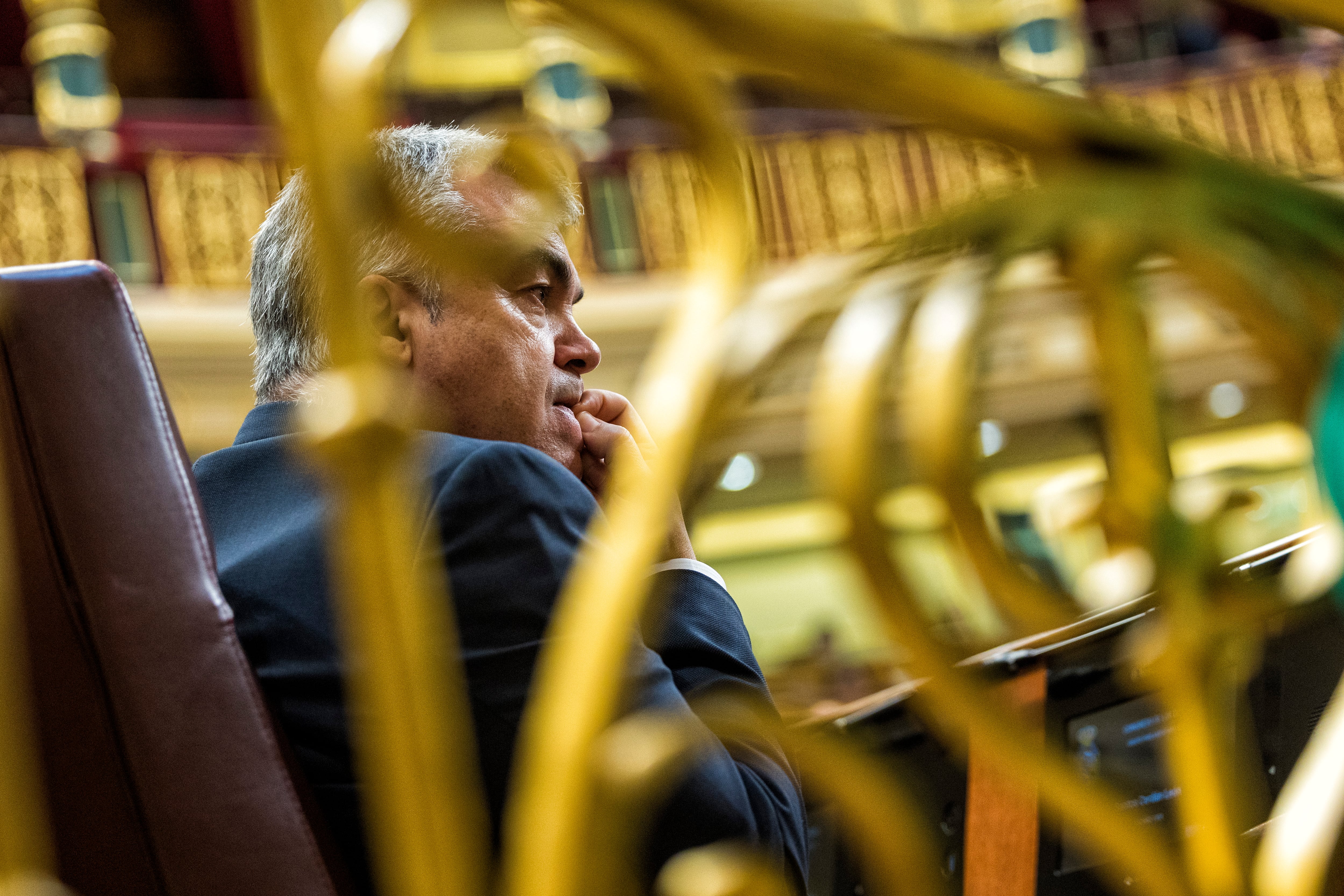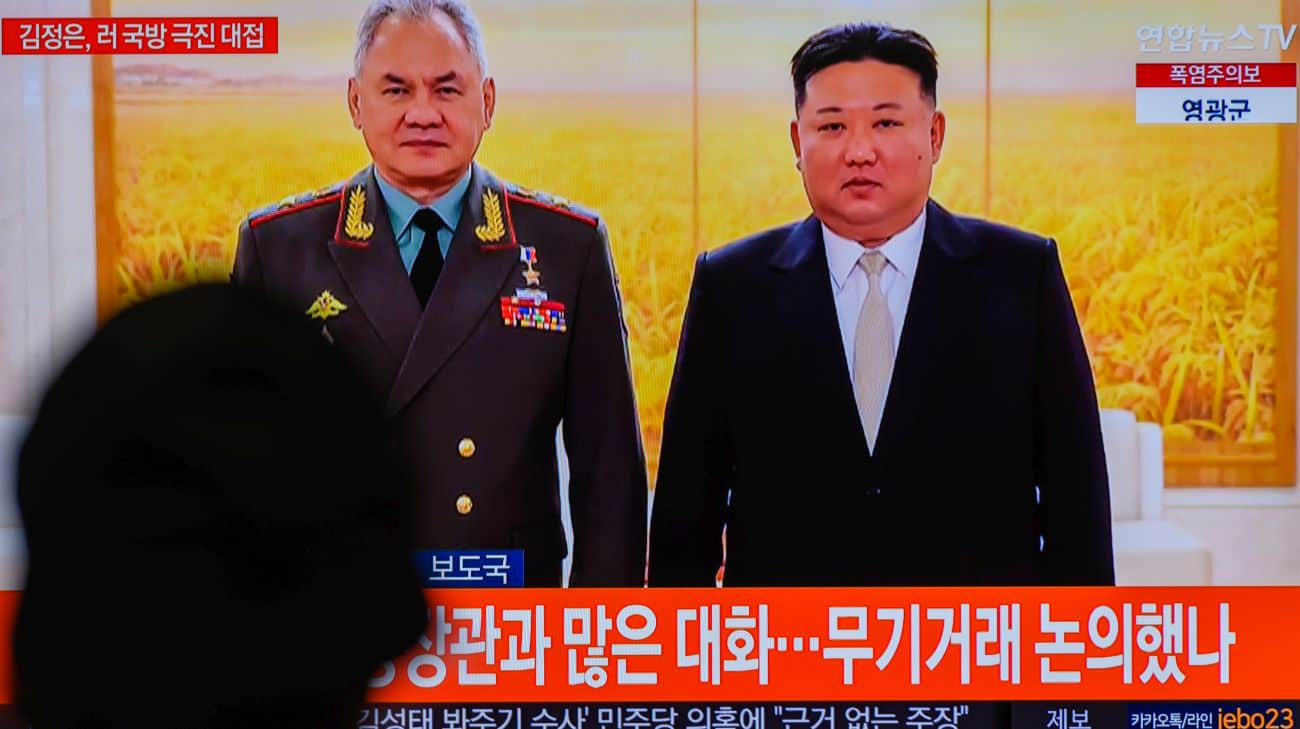The Spaniards in Gibraltar, waiting for the treaty: « Before it was 100% of uncertainty, now 50% » | Spain

Javier Postigo joined the points after reading a headline on June 10: “The European Commission will take Gibraltar from his list of jurisdictions at risk of money laundering. ”
This 35 -year -old worker and the line of conception has not been the only one who had been tieding ends days and waiting for a speedy resolution. International law experts consulted agree that the world context complex has been key to resolving the question of the rock that, in a thickness that was, had become a stone in the shoe in the relations between the United Kingdom and the EU. It was necessary to settle it.
Almost a month ago, the runrún in Gibraltar and his surroundings became incessant. After three years and eight months of negotiations, it was practically the last post-overxit agreement that was pending. Postigo, one of the 15,200 cross -border employees that every day is going through, had been restless for days, just like the rest of his classmates. They are the living picture of how macro affects everyday life, the day to day of some workers who have been looking for certainty to go to their jobs and solve their “with social security” problems, as explained by the Linense, overwhelmed by the eternal problem with work casualties or pensions. Now that there is agreement, look at the future in another way: « Before it was 100% uncertainty because we did not know what was going to happen and now there is 50% of uncertainty. »
Although the three parties – Spain, the United Kingdom and the European Union– They have stated that the treaty text is very advanced and will be topped for autumn, the international law expert of the University of Cádiz (UCA), Jesús Verdú, believes that everything has accelerated in recent weeks for exogenous reasons and international draft: “After these hard years of negotiations, in the end, the Trump and Putin factors have been key. The United Kingdom has seen how a traditional ally of Trump is a potential enemy that challenges the set of rules that have governed euroatlántic relations.
The Gibraltareño businessman Bruno Callaghan watched the future that has been postponing the reconstruction of the Caleta hotel in Gibraltar for almost two years. On Wednesday he followed the announcement of agreement and now breathes relieved. But it does not only do it for the economic context that now opens and that he will take advantage to resume the pending investment, but because he understood that the treaty fit perfectly in the new international context that Europe lives. « In today’s world we must recognize that the enemy is Russia or North Korea, not Spain or Europe, » explains the businessman. A similar impression has taken the Professor of International Law of the UCA Alejandro del Valle after a recent visit to the United Kingdom: « I had never heard them refer to themselves as Europeans as now. I think, thanks to Trump, the country will find a comfortable site, of readence with the European Union. »
But to be able to advance in that relationship, there was a distorting element: Gibraltar. The Spanish Foreign Minister himself, José Manuel Albares already explained to El País that “without first closing this chapter” he could not advance. And it is not precisely because the rock worries greatly in Europe, something that Verdú says, but because « it could not be an issue that generates a cloudy negotiating environment. » For the expert that is just the key difference in the context that is given now and that did not exist when the agreement was signed prior intentions on the New Year’s Eve of 2020. At that time it was expected that the treaty that is now expected for the next autumn would take a few months, but the negotiations have extended years.
As Postigo, Del Valle also warned that something was moving when the English government Keir Starmer announced in early June his strategic defense review, an important investment that also established Gibraltar as a key piece. The Professor League that recognition to the intense debate that the Llanitas military bases have generated to the extreme of lengthening the agreement. « In the end I believe that everyone wins. The United Kingdom maintains its bases regardless of, the Gibraltareños have their life resolved from the economic point of view and Spain remains in privilege because Gibraltar, in a certain way, is incorporated into Schengen from the hand of Spain. The last word will be of Spain because one thing is the control (which will be of the Gibraltar and Spanish police officers) and another the decision, »
Although there are still months to close technical fringes, Del Valle defends that Wednesday’s announcement has a binding nuance, with the venia of the convulsive and weakened situation of the Spanish government, after the KOLDO CASE: « The announcement of the agreement shed the skein of symbolism with the issue of police and security. There is a rare balance that can help to slide these symbolic issues. » So now Verdú cannot hide his curiosity about how all these issues will be resolved from a legal point of view. He cites the example of environmental issues and wonders what system Gibraltar will follow or before which court will respond in case of doubt or litigation.
« As a lawyer, the political agreement is well intentional, presents doubts, but needs to be legally developed. It starts from a political will, but we must transfer it to binding legal texts. It requires imagination, but if the politician tells you, the jurist finds the way, » says the expert Verdú. Faced with so many topics to deal with and develop, The draft already goes for the 200 pagesnot including the long annexes that must accompany it. Del Valle is not surprised. « I was a supporter of a simple treaty with a mixed commission that is resolving. But it has been chosen for a macrotate, which is more complex to do. In short, it will remain as an internationalized area under European flag and that will be a historical novelty. »







